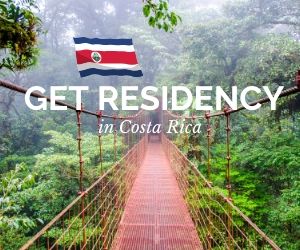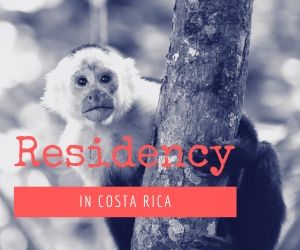Please read the following and tell me if this fairly describes the profile and attitudes of a fair number of us on this board (not exempting myself):
Quote:
Costa Rica is one of the many economically underdeveloped countries on the itinerary of the kind of sex tourist who considers himself to be an 'average', 'regular' guy who enjoys 'the company' of women and likes to visit brothels, strip clubs, and go-go bars.
All of the 'regular guys' we met were American, and the fact that bars, clubs and brothels in San Jose advertise the presence of English speaking staff and provide details of shows, menus, cocktail lists etc. in English but not in, say, German or Italian, suggests that the organized sex industry caters largely to North Americans.
The sex tourists we met in San Jose were bachelors, divorcees or widowers aged between 45 and 70 (it may be that during the high season in Jose, the age profile is younger), they were comfortably off but not wealthy by US standards and they make between two and five trips a year either to Costa Rica or to other favorite American sex tourist destinations such as the Dominican Republic, Brazil and Mexico.
The attitudes of these men towards gender and sexuality, as well as attitudes towards Costa Rica, were essentially the same as those of the North American retirees described above (who had, of course, practiced sex tourism prior to moving to Costa Rica on a permanent basis).
They told us that Tican women 'love sex', that Costa Rican attitudes towards sex are 'different' and more 'natural', that as a consequence prostitution is not frowned upon in Costa Rica. They told us that Costa Rican women are not like American women - they don't judge a man by his age or appearance, that Tican women are 'really sincere and friendly'.
They also believed that Tican men (unlike themselves) are macho and that women therefore prefer American men who are true 'gentlemen' and treat them well. It is this and not the economic situation in which most Costa Rican women find themselves which explains the large numbers of Tican women seeking Western husbands.
It may be that only a 'hard core' of 'regular guy' sex tourists travel to Costa Rica in low season but it certainly seemed, even more than in Thailand or Cuba, that such sex tourists feel themselves to be part of a large and loosely co-ordinated 'Boy's Club'. A small fraternity of middle aged and elderly American men gather in a specific bar at 'happy hour', a Tican girl at their side while they watch the ball game on cable TV or flick through the 'defense' magazines (many of them are military or ex-military men).
They can buy souvenir baseball caps and T-shirts to remind them of evenings spent this way and the owner invites them to bring along their own state flag to hang in the bar next time they come to San Jose. Later on, they can go to another bar where they will see the same faces night after night, the other 'guys' out to get laid, compatriots with whom to laugh and boast about their 'sexploits'.
Although such men enjoy a visit to brothels and strip joints, it is highly unlikely that they go to the illegal brothels which cater to local demand. Indeed, the guru and epitome of 'regular guy' sex tourists, Bruce Cassirer, explicitly warns them not to stray too far from bars and massage parlours that cater to tourists: 'Watch out... it can get a little seedy if you wander too far away from the park' (Cassirer, 1992:77).
The above was part of an academic paper prepared in 1995 by two female authors in the UK as background documentation for the
World Congress Against the Commercial Sexual Exploitation of Ch*ldren. Another member recently posted a link to this article, but perhaps because of the way he presented it, everyone jumped all over him, and it appears the thread has already been deleted.
As someone who bothered to read the article, I have to commend the authors for the depth and extent of the research that went into it. Even ten years later, some of what they say appears to still be observably true.
The problem I have with it, however, is that - beyond the obvious anti-sex trade bias and patronizing tone of much of it - like most similar tomes, it attempts to raise public ire and attract attention by drawing a direct link between an activity that is completely legal in the country practiced (adult prostitution), with one (Ch*ld prostitution) which we all universally condemn and I don't think in any instance would knowingly participate in.
I read a similar article recently in the Los Angeles Times concerning a location on the central Brazilian coast frequented mainly by Europeans. Despite the attention grabbing "Ch*ld prostitution" headline, little if any substantive evidence was provided in the article that such a practice was common or widespread.
Does Ch*ld prostitution exist? Unfortunately, yes, of course, but probably no more so in Costa Rica than anywhere else, including here. And definitely not to the degree the morality police would like the public to believe.










